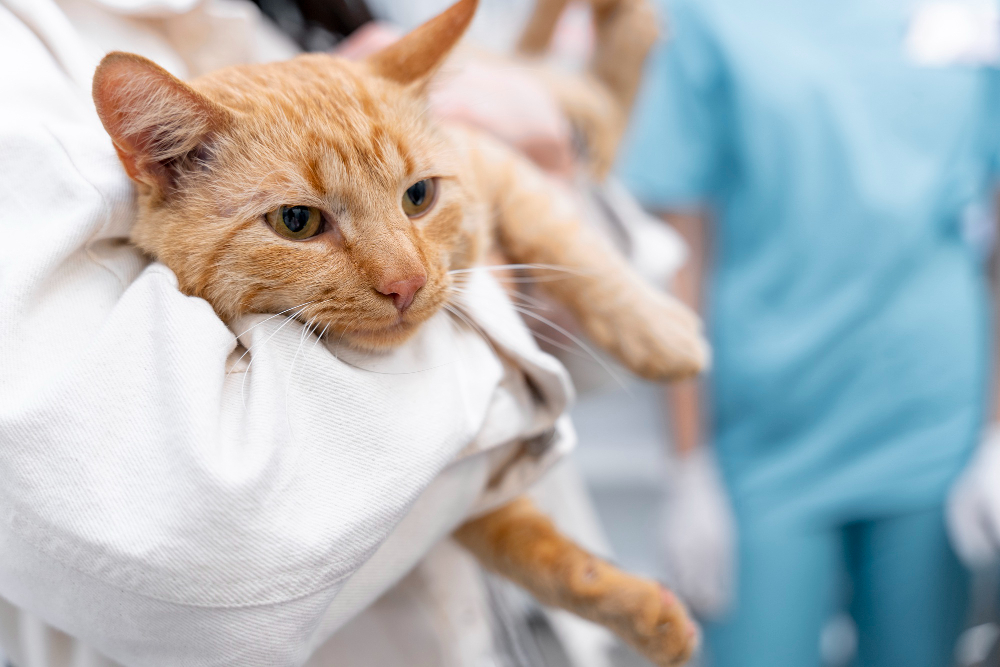How to Recognize Signs of Suffering and Declining Health in Pets

How to Recognize Signs of Suffering and Declining Health in Pets

When we welcome pets into our lives, we promise them love, companionship, and care. But as much as we cherish the joyful moments, there comes a time when we must confront the realities of aging or declining health in our furry companions. Recognizing the signs of suffering is a crucial step in ensuring their comfort and dignity, especially for pet owners considering in-home euthanasia in Reno, NV.
This guide will help you identify the major signs of suffering and determine the best course of action for your beloved pet, keeping their well-being at the heart of every decision.
Common Signs Your Pet May Be Suffering
Pets have a remarkable way of masking pain and discomfort, which is a survival instinct passed down from their wild ancestors. However, there are several subtle and not-so-subtle signs you can look for that may indicate declining health or suffering.
Physical Changes
1. Changes in Mobility
If your pet is having difficulty standing, walking, climbing steps, or getting in and out of their favorite spots, it might be a result of joint pain, arthritis, or general weakness. Many pets with mobility issues may start avoiding activities they once enjoyed.
2. Unexplained Weight Loss or Gain
Sudden weight loss or gain can be a sign of underlying health issues, such as diabetes, kidney disease, or cancer. Pay attention to changes in appetite and eating habits, as these often coincide with weight changes.
3. Difficulty Breathing
Heavy panting, wheezing, or labored breathing are serious signs that should never be ignored. These could point to respiratory infections, heart problems, or fluid buildup in the chest.
4. Loss of Coat Condition
A healthy pet typically has a shiny, well-groomed coat. If your pet’s fur begins to matt, dull, or fall out excessively, it might indicate skin conditions, poor nutrition, or even stress.
5. Changes in Bathroom Habits
Frequent accidents, straining during urination, or diarrhea may signal urinary tract infections, digestive issues, or other medical concerns that affect your pet’s comfort.
Behavioral Changes
1. Increased Irritability or Aggression
Pain and discomfort can make even the gentlest pets irritable. If your pet has started growling, snapping, or acting aggressively, it might be their way of expressing discomfort.
2. Withdrawal or Reluctance to Interact
A pet that suddenly becomes withdrawn, hides more often, or avoids physical contact may be experiencing emotional or physical pain. This could be their way of coping with discomfort or fatigue.
3. Restlessness or Difficulty Sleeping
Restless pacing, an inability to settle down, or frequent changes in sleeping positions are often signs that your pet is uncomfortable and trying to find relief.
4. Clinginess or Unusual Attention-Seeking
Some pets, on the other hand, may seek more affection and attention when they’re unwell. Keep an eye on changes in their usual patterns of interaction.
Emotional and Cognitive Changes
1. Signs of Cognitive Dysfunction
Just like humans, older pets can experience cognitive decline. Confusion, disorientation, getting stuck in corners, or forgetting familiar routes are common indicators of a condition like canine cognitive dysfunction.
2. Loss of Interest in Food, Play, or Activities
If your pet seems disinterested in toys, treats, or even walks, it might be a sign of depression or declining health. Such changes often reflect a loss of vitality.
3. Unusual Vocalizations
Persistent whining, groaning, or howling can sometimes indicate pain or distress. Pay attention to new or unusual sounds that your pet makes.
Making the Decision for Their Comfort
Deciding when to say goodbye to a beloved pet is heart-wrenching, but their well-being must come first. If you've observed many of the signs mentioned above and your pet's quality of life has significantly declined, it may be time to consider compassionate options like in-home euthanasia.
What is In-Home Euthanasia and Why Choose It?
In-home euthanasia allows your pet to transition peacefully within the comfort of their home, surrounded by family and familiar surroundings. For those in Reno, NV, this option provides a gentle and dignified way to say goodbye, ensuring minimal stress for both the pet and their family.
Why choose in-home euthanasia?
- It avoids the anxiety of a car ride and vet clinic visit.
- Your pet remains in familiar surroundings where they feel safe.
- You and your family have privacy and time to grieve.
- It allows you to create a meaningful and comforting goodbye.
How to Assess Your Pet's Quality of Life
A helpful way to evaluate your pet’s well-being is the "HHHHHMM Scale," developed by Dr. Alice Villalobos, a renowned veterinary oncologist. This scale assesses seven key factors:
- Hurt: Is your pet in pain that medication cannot control?
- Hunger: Is your pet eating and maintaining their weight?
- Hydration: Can they drink and stay hydrated without assistance?
- Hygiene: Are they able to keep themselves clean?
- Happiness: Do they still enjoy interactions, walks, and play?
- Mobility: Can they move and get around without significant difficulty?
- More Good Days Than Bad: Are the good moments outweighing the tough ones?
Rating each of these factors on a scale from 0 to 10 can provide clarity about their quality of life. If most of the ratings fall below 5, it may be time to discuss options with your veterinarian.
Finding the Right Support in Reno NV
If you live in Reno, NV, and are considering in-home euthanasia, Rover Veterinary Care specializes in compassionate and dignified end-of-life care for pets. We understand how painful this decision is, and we are here to guide you through every step of the process.
Our experienced team will work with you to ensure your pet’s comfort and provide the support you need during this difficult time.
Contact us today to learn more about in-home euthanasia services in Reno, NV, or to discuss any concerns about your pet's health and well-being.
Giving Your Pet a Loving Goodbye
Pets fill our homes with joy, love, and memories that last a lifetime. Recognizing when they’re suffering may be one of the hardest steps, but it’s also one of the most compassionate acts of love you can offer them.
Take the time to observe their behaviors, evaluate their quality of life, and seek professional guidance when needed. If you’re in Reno, NV, considering in-home euthanasia, Rover Veterinary Care stands ready to help you and your pet through this heart-wrenching but meaningful transition.
Your pet has given you unconditional love and companionship. Now, it’s your turn to give them the gift of peace.
